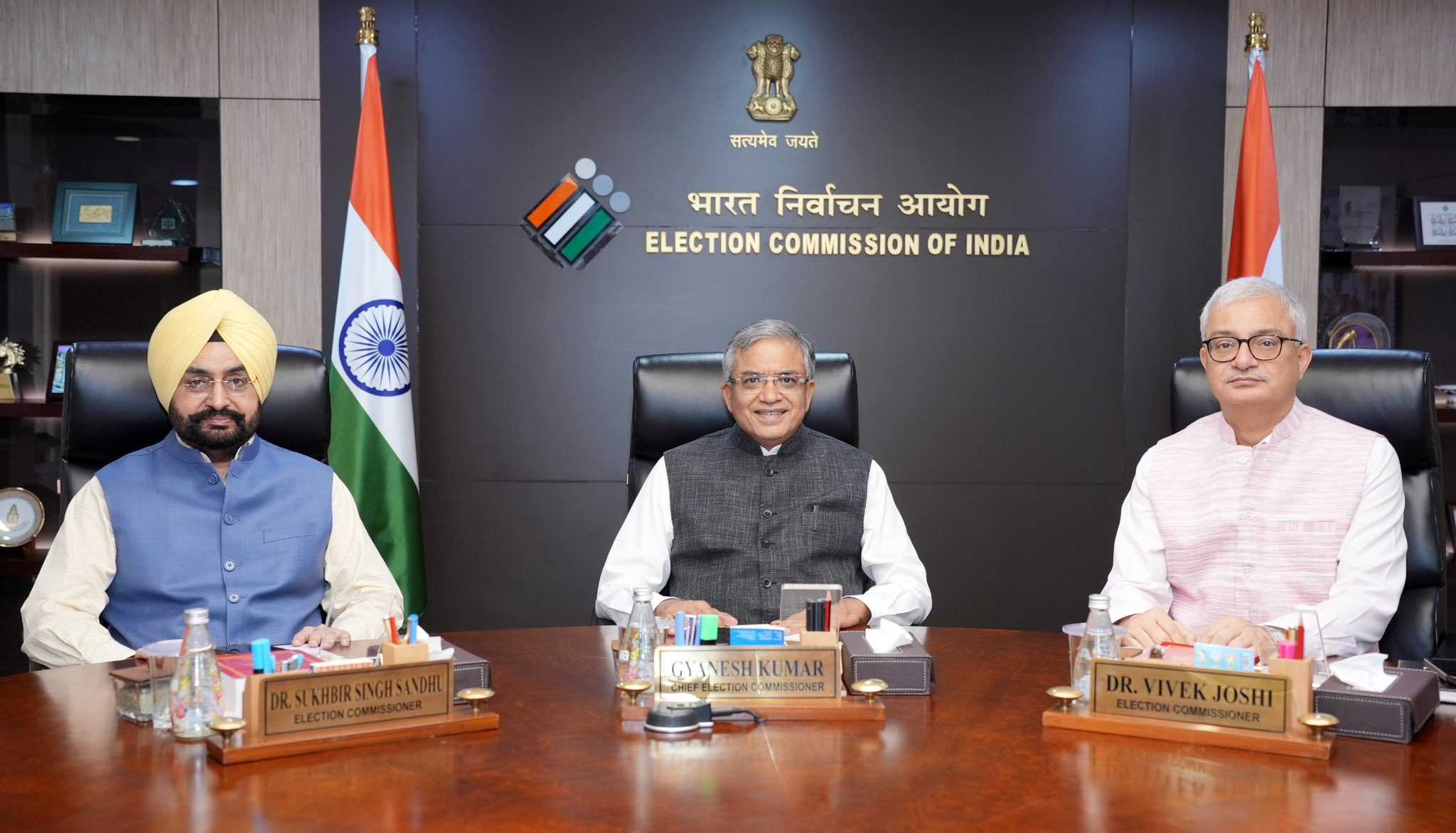India's Poll Body Rejects LoP Rahul Gandhi's ‘Vote Theft’ Allegations; Says Special Revision Transparent and Rooted in Law
India’s Chief Election Commissioner (CEC) Gyanesh Kumar on Sunday dismissed opposition allegations of “vote theft” in poll-bound Bihar; said the ongoing Special Intensive Revision (SIR) of electoral rolls is rooted in law and transparency; and underlined that the Election Commission of India (ECI) “has no opponents and no supporters.”
 |
| Image Source: Election Commission of India |
The CEC countered these claims by stressing that electoral rolls were being prepared in full consultation with voters, Booth Level Officers (BLOs), and Booth Level Agents (BLAs) nominated by political parties.
According to the CEC, more than 7 crore voters in Bihar, supported by 1.6 lakh BLAs from across parties, have jointly prepared the draft rolls.
He noted that party representatives were not only certifying the draft rolls but also signing and recording video testimonials, thereby creating what he described as a transparent, multi-layered process.
The Commission expressed concern that testimonies from the ground, including those from district-level leaders, were not being relayed faithfully to national-level party leadership, and accused some political actors of spreading “confusion” despite the documented process.
The Commission reiterated that the SIR is not a new or unprecedented step. It noted that such exercises have been conducted more than ten times across India in the past, with the primary purpose of purifying voter lists.
“This is not being done in haste,” the CEC said, pointing out that the process began on June 24 and was substantially completed by July 20.
He underlined that under the Representation of the People Act, rectification of voter lists before every election is a legal responsibility.
The controversy intensified earlier this month after Rahul Gandhi alleged that the EC was “colluding” with the ruling Bharatiya Janata Party (BJP) to manipulate voter rolls, first citing data from Karnataka and later claiming that the Bihar revision amounted to a fresh “conspiracy.”
Opposition parties have dubbed the exercise “Votebandi” and warned that democracy in the state was under threat.
The Election Commission has firmly rejected these allegations. It has repeatedly pointed to the legal avenues available to political parties to challenge voter rolls or election results, including claims and objections during the draft publication period, appeals to Sub-Divisional Magistrates (SDMs) or Electoral Registration Officers (EROs), and further challenges to the Chief Electoral Officer (CEO).
Even after results are declared, the law permits challenges through election petitions in the Supreme Court within 45 days.
The CEC questioned why such remedies were not invoked at the appropriate time, only for accusations to be leveled months later.
Kumar also addressed questions over voters’ data being used in media presentations, stressing that the Election Commission will not release CCTV footage or personal details of voters, including women and family members, as part of rebutting political allegations.
“Only those whose names are in the voter list cast their votes,” he said, warning against attempts to politicize individual voters’ identities.
The CEC emphasized that India’s election machinery--spanning over one crore officials, more than 10 lakh BLAs, and over 20 lakh polling agents--operates in a transparent, decentralized manner that makes large-scale “vote theft” implausible.
“In such a transparent process in front of so many people, can any voter steal votes?” he asked rhetorically.
He underscored that the ECI’s role is constitutionally mandated and that no political party, whether ruling or opposition, is given preferential treatment.
At the same time, the Commission defended its decision to prohibit machine-readable voter lists, a move made in line with a 2019 Supreme Court judgment.
It also explained that “zero number” addresses on rolls often reflect the absence of municipal or panchayat house numbers, and not deliberate irregularities.
The Election Commission confirmed that a similar SIR exercise could be carried out in West Bengal and other states in due course, but that such a decision would be taken collectively by the three election commissioners. For now, the Bihar revision remains the immediate focus ahead of the assembly polls.
